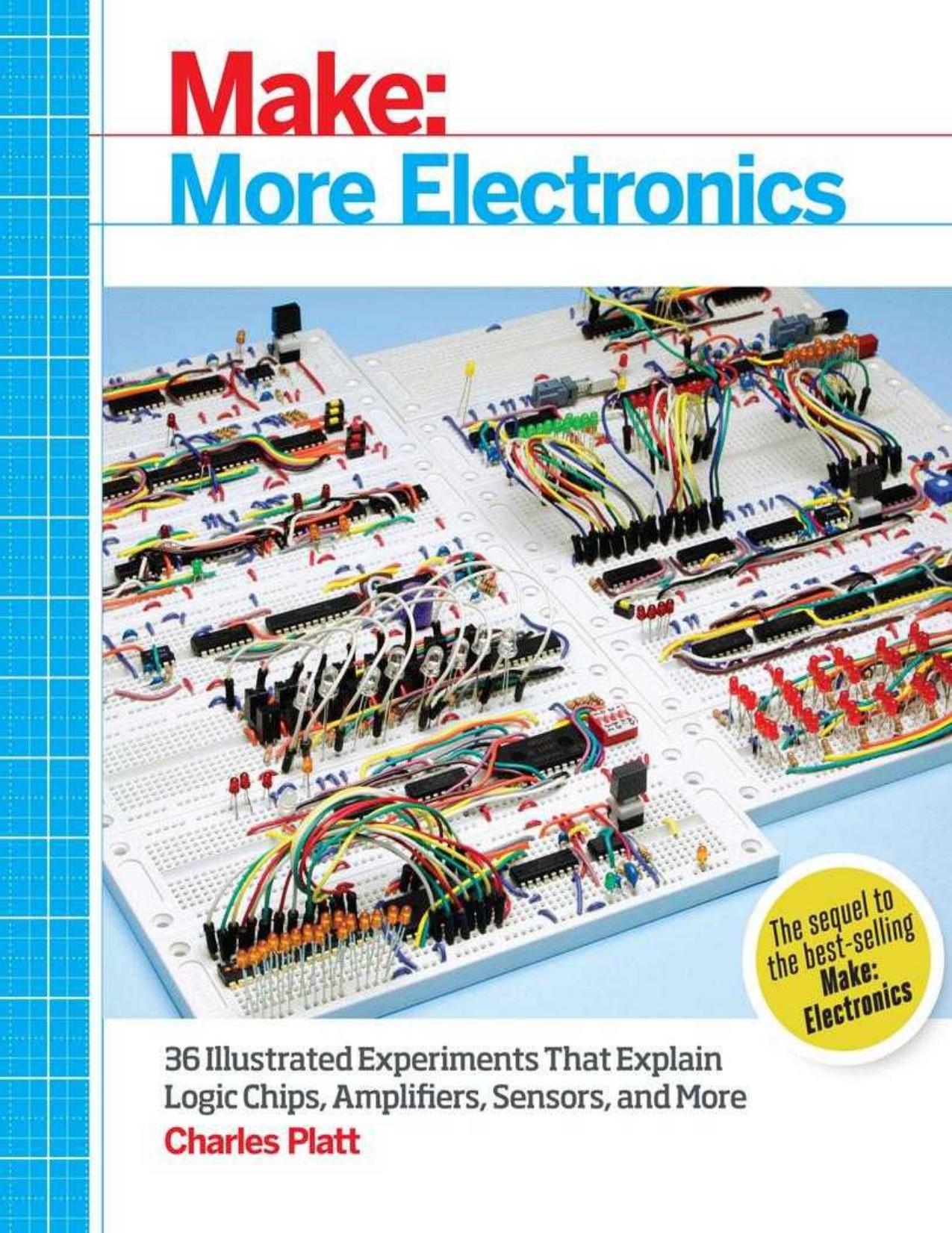Make: More Electronics: Journey Deep Into the World of Logic Chips, Amplifiers, Sensors, and Randomicity by Platt Charles

Author:Platt, Charles [Platt, Charles]
Language: eng
Format: azw, pdf
ISBN: 9781449344047
Publisher: Maker Media, Inc
Published: 2014-04-28T16:00:00+00:00
Background: Alternative Game Arrays
If Player 2 has a 12.5% advantage in a sixteen-coin game, would it be the same in a game with fewer or additional coins and slots?
No, the advantage will be different. To see why, I’ll take an extreme example. Suppose we have a game in which there are only two slots. In this game, the person who goes first gets his own coin back if he wins and loses it if the second player wins. So the first player never wins anything! On average he will win half the games and lose half the games, so in an average game, he should expect to lose half a coin, while Player 2 should expect to win half a coin.
In fact, no matter how many coins and slots there are (so long as it’s an even number), Player 1 always loses an average of half a coin per game, and Player 2 always wins an average of half a coin per game. Extra coins and slots simply mean that each game lasts longer, and Player 2 has to put up a higher stake, to win that half a coin.
Extra coins and slots help to hide the fact that Player 2 has an advantage. In a two-slot game, the advantage becomes obvious. In a sixteen-slot game, it’s not obvious at all.
Download
Make: More Electronics: Journey Deep Into the World of Logic Chips, Amplifiers, Sensors, and Randomicity by Platt Charles.pdf
This site does not store any files on its server. We only index and link to content provided by other sites. Please contact the content providers to delete copyright contents if any and email us, we'll remove relevant links or contents immediately.
Whiskies Galore by Ian Buxton(41993)
Introduction to Aircraft Design (Cambridge Aerospace Series) by John P. Fielding(33119)
Small Unmanned Fixed-wing Aircraft Design by Andrew J. Keane Andras Sobester James P. Scanlan & András Sóbester & James P. Scanlan(32789)
Craft Beer for the Homebrewer by Michael Agnew(18237)
Turbulence by E. J. Noyes(8040)
The Complete Stick Figure Physics Tutorials by Allen Sarah(7363)
The Thirst by Nesbo Jo(6932)
Kaplan MCAT General Chemistry Review by Kaplan(6926)
Bad Blood by John Carreyrou(6611)
Modelling of Convective Heat and Mass Transfer in Rotating Flows by Igor V. Shevchuk(6432)
Learning SQL by Alan Beaulieu(6280)
Weapons of Math Destruction by Cathy O'Neil(6264)
Man-made Catastrophes and Risk Information Concealment by Dmitry Chernov & Didier Sornette(6005)
Digital Minimalism by Cal Newport;(5749)
Life 3.0: Being Human in the Age of Artificial Intelligence by Tegmark Max(5547)
iGen by Jean M. Twenge(5408)
Secrets of Antigravity Propulsion: Tesla, UFOs, and Classified Aerospace Technology by Ph.D. Paul A. Laviolette(5365)
Design of Trajectory Optimization Approach for Space Maneuver Vehicle Skip Entry Problems by Runqi Chai & Al Savvaris & Antonios Tsourdos & Senchun Chai(5063)
Pale Blue Dot by Carl Sagan(4996)
